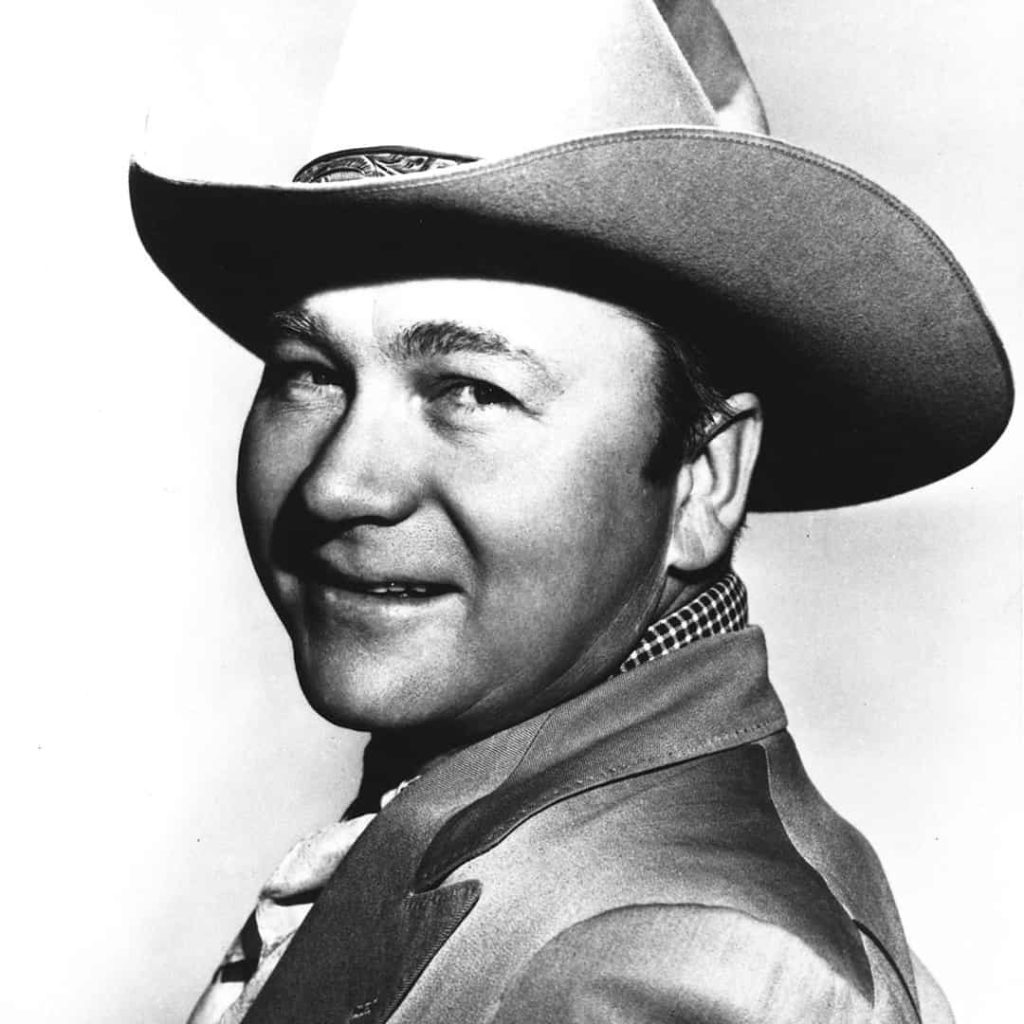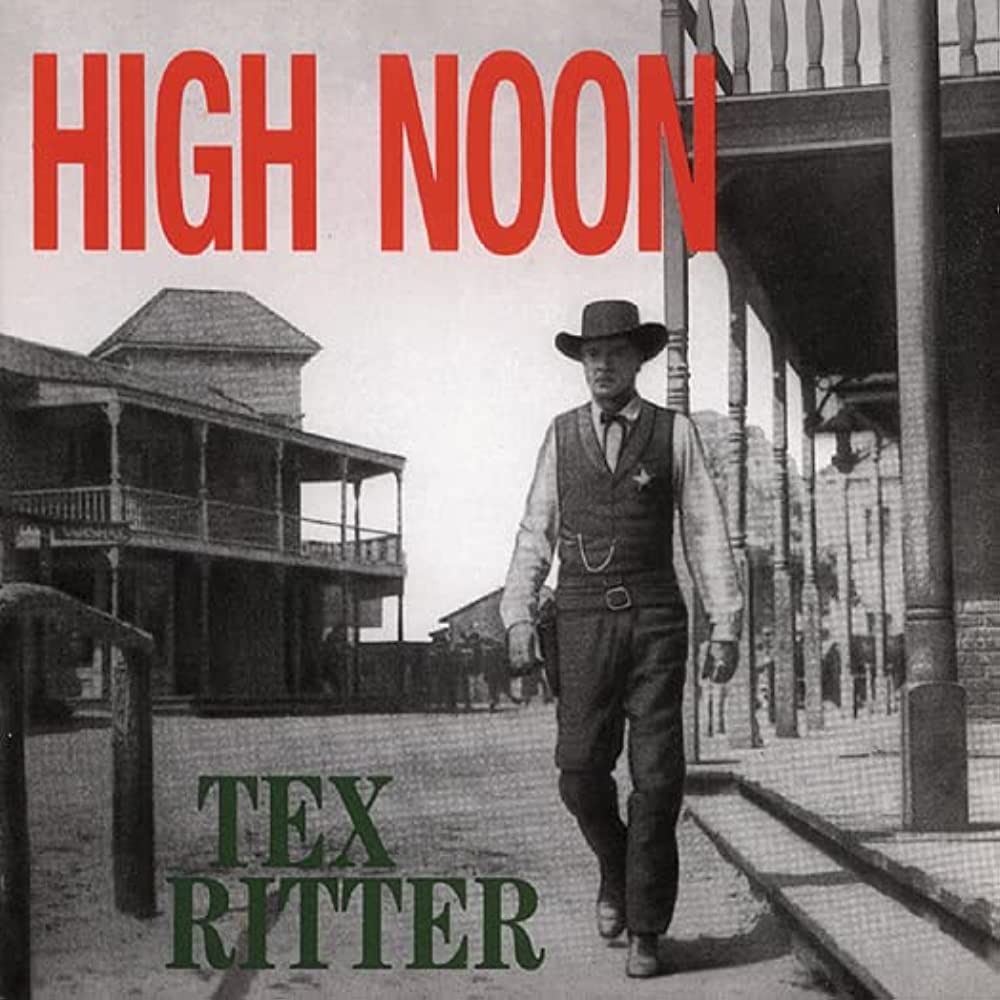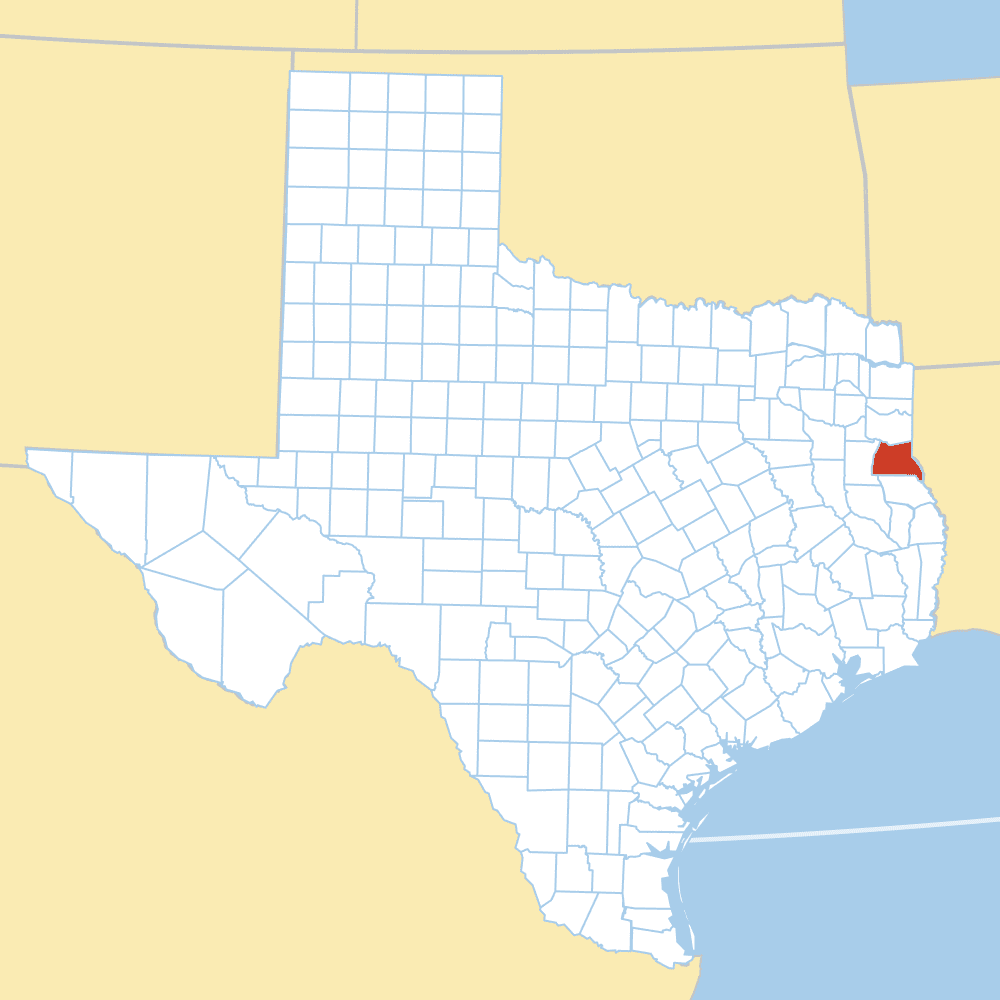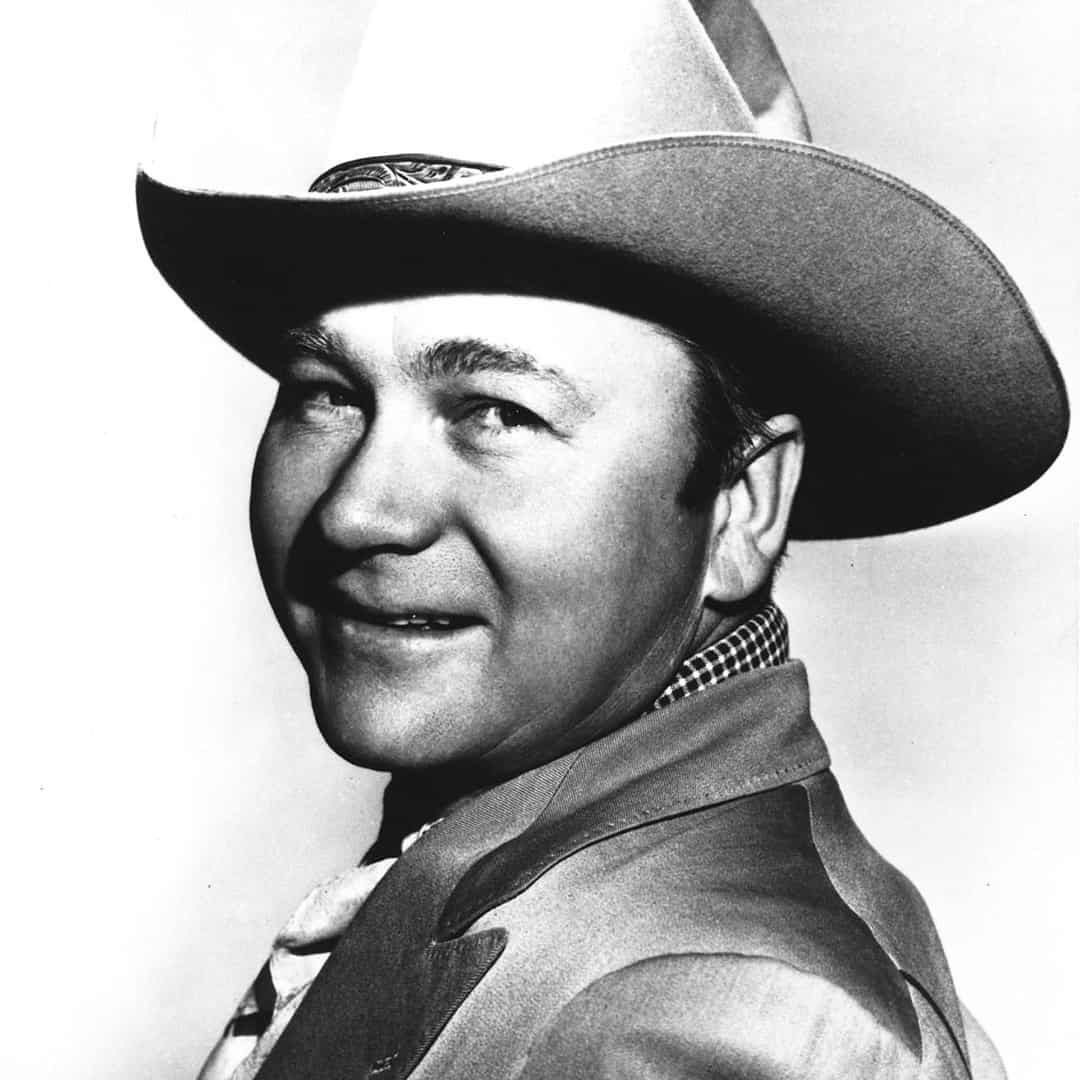
Tex Ritter (1905-1974)
Born “Woodward Maurice Ritter” in Panola County, TX in 1905, Tex Ritter was a famous “singing cowboy.” Ritter grew up on a ranch in Beaumont, TX and lived and worked there until he left to attend the University of Texas. It was there that Ritter met some of the noted authorities on cowboy music, including J. Frank Dobie, Oscar J. Fox, and John Lomax. Interestingly enough, Ritter attended the University not to study music, but to study law. During his time at the University, Ritter hosted a radio program playing cowboy songs on KPRC in Houston, TX.
In 1928, Ritter moved to New York City where he had a brief stint working on Broadway productions. During this time, Ritter was active in the radio scene and even made his first commercial recordings, which flew under the radar at the time. In 1936, Ritter was signed by producer Edward Finney to make the movie Song of the Gringo (1936) and moved to Hollywood. With this film, Ritter got his start as a “singing cowboy.” However, the films that Ritter starred in were made by Grand National and Monogram, two of what are called “Poverty Row” studios, and Ritter had very little success from them.
“Poverty Row” studios are studios that made films very cheaply and quickly in order to turn a quick profit. These films were considered a "lower" form of film compared to the more prestigious films made by larger Hollywood studios.
In 1942, Ritter was signed by the newly formed Capitol Records. With his talent, both he and the record label grew very successful and popular. In 1952, Ritter was asked to write the theme for a western film called High Noon (1952). This song became immensely popular and made Ritter famous as a musician. His success with the theme for High Noon made him a top choice for writing western themes, and he would go on to write themes for various other American westerns.

High Noon (1952) is an American western starring Gary Cooper and Grace Kelly about a town Marshal who must deal with interpersonal drama in his life while also preparing to face a band of killers, whose leader has just returned after being sent to prison by the Marshal.
When his Hollywood stardom began to fade, Ritter began to co-host a show called Town Hall Party, which became one of the most popular country music TV shows in the country. While he co-hosted the show, Ritter continued to write and record new music. In 1965, Ritter moved to Nashville where he would try his hand in politics, running for the US Senate. Ritter was unsuccessful politically and remained in Nashville until his death in 1974.
Ritter’s legacy as one of Hollywood’s singing cowboys was survived by his son, John Ritter, who had a career in film and TV that was possibly more notable than that of his father. John Ritter became well-known from his role in the American sitcom Three’s Company for which he received a Golden Globe.
The Texas Connection

Tex Ritter was born in Panola County, Texas, and grew up and worked on a ranch there until he left to go to University. Ritter also adopted a stage name, “Tex Ritter”, as an homage to his home state upon entering the entertainment industry. Later in his career, Ritter would also play with his band “the Texans” while he was recording music with Capitol Records.
Ritter’s music and image is also clearly influenced by his home state of Texas. Ritter’s style of music was directly influenced by his time in Texas and his interaction with the foremost authorities on cowboy music that he met at the University of Texas. Unlike other musicians that adopted the cowboy look or sound, Ritter had a history as a real-life working cowboy before he became the singing cowboy that he was for the rest of his life.
Songs
Rye Whiskey, Rye Whiskey (1933) has a very cowboy/trail song-like sound to it. It is a relatively short song that features Tex Ritter singing what can only be described as caterwauling, or maybe a sad, strangled yodeling sound.
I’m Wastin’ My Tears on You (1944) is a far more upbeat song than some of the others described here. This song was recorded during Ritter’s time with Capitol Records and features his band, the Texans. The song has very sad lyrics of a man coming to terms that he no longer loves his girl and is turning her loose. Despite the sad lyrics, the vocals are very upbeat and so is the instrumentals. The instrumentals seem to have a big band/jazz sound to them, and the song features short bursts of vocals separated by long instrumental solos.
The theme from the 1952 film High Noon is what you might expect if you have a passing knowledge of western themes, especially American westerns. There is a very sad, romantic sound to the song, with slow guitar and somber vocals. The story of the film is spelled out in the lyrics of the song, telling the sad story of a hero who must face down overwhelming odds.
(I Dreamed of a) Hillbilly Heaven is a song that Ritter made late into his career and is one that he is most famous for. The song has a very operatic sound and tells the story of Ritter waking up in heaven, where he meets some of his cowboy music heroes, like Hank Williams, Johnny Horton, and Will Autry (who guides him around Hillbilly Heaven in the song). Ritter then goes on to shout out some of cowboy music’s up-and-comers, like Ernest Tubb and Tennessee Ernie Ford. The song seems to be Ritter’s reminisce of his career and the genre he helped pioneer.
References: “Tex Ritter”. Country Music Hall of Fame. https://www.countrymusichalloffame.org/hall-of-fame/tex-ritter “High Noon”. Amazon. https://www.amazon.com/High-Noon-Tex-Ritter/dp/B0000282VN “Tex Ritter”. Alan Cackett: Americana, Roots, Country & Bluegrass Music. NEO Music. https://alancackett.com/tex-ritter-biography “Panola County”. Phonebook of Texas. https://phonebookoftexas.com/panola-county/ Nehme F.S. "The Dirt-Cheap Lost Classics of Poverty Row Filmmakers, Restored at MOMA". The Village Voice. https://www.villagevoice.com/2017/10/19/the-dirt-cheap-lost-classics-of-poverty-row-filmmakers-restored-at-moma/

